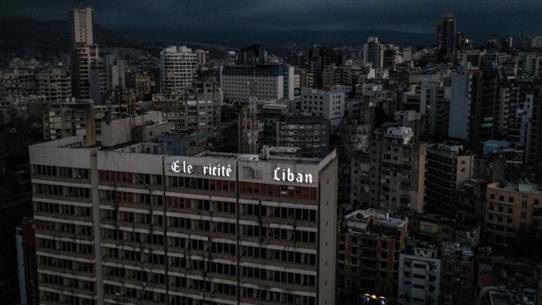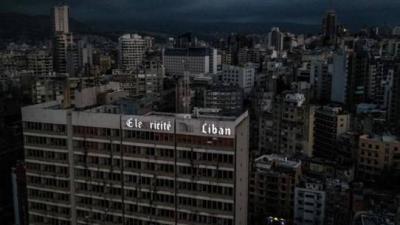The Lebanese government is striving to secure an electricity supply averaging 10 hours daily, starting from December, following two financial measures. The first measure involves increasing the electricity tariff for subscribers by about 30 times, alongside an agreement with the Central Bank of Lebanon to provide hard currency at the exchange rate of its “Sayrafa” platform for importing fuel.
Notably, the solution recently agreed upon aims to operate production plants using fuel oil, rather than gas, after the recent proposal to import gas from Egypt for a gas-powered plant in northern Lebanon faltered. Sources from the Ministry of Energy stated to "Asharq Al-Awsat" that recent efforts have largely succeeded in resuming electricity production in thermal plants, with the ministry launching three tenders through the General Directorate of Oil for the purchase of both Grade A and Grade B fuel oil and gas oil in favor of Electricité du Liban.
The launch of the tender followed consultations and meetings between caretaker Prime Minister Najib Mikati, caretaker Minister of Energy and Water Walid Fayad, the Ministry of Finance, and the Governor of the Central Bank of Lebanon, Riad Salameh, which resulted in securing necessary funding to purchase oil derivatives for operating Electricité du Liban's power plants, aiming to achieve a daily supply rate between 8 to 10 hours.
According to the terms of reference, bids will be opened in November, with fuel delivery scheduled between December 1 and 10. Lebanon has been experiencing a significant electricity supply shortage since the summer of 2021, due to the Central Bank's inability to secure dollars for importing fuel, and the parliament has not granted the Ministry of Energy a treasury advance for Electricité du Liban to import fuel. Power plants have only operated on the fuel provided by the Iraqi government over the past year at a rate of one shipment per month, generating electricity for about 4 hours daily, in addition to hydroelectric plants supplying some areas with electricity.
The Ministry of Energy is seeking sustainable fuel sources with payment facilitation. Following the energy minister's visit to Algeria three days ago, sources suggested that the visit was positive regarding fuel procurement, noting that "many obstacles have been overcome," which will help secure fuel shipments that meet specifications with payment facilitation for Lebanon.
The electricity issue has long been dependent on financing and securing revenue for purchasing fuel and operating the plants. The electricity price was subsidized by the state until the beginning of this month, when it increased about 30 times compared to previous levels. The government views this measure as a solution to escape the electricity supply crisis, allowing self-funding without imposing pressure on an already struggling state budget.
The Ministry of Energy intends to raise the tariff to make the price per kilowatt-hour $0.10 for the first segment, meaning this price applies to the first 100 kilowatt-hours consumed, while the price above that will be $0.27 per kilowatt. The exchange rate for the dollar will be based on the Central Bank's Sayrafa platform. Consequently, the price per kilowatt in the first segment will be about 3,000 Lebanese pounds, up from 80 pounds in the previous bill.
Additionally, “International Information” noted that the services will also be calculated in dollars. In a report released on Wednesday, it stated that for a household consuming 250 kilowatt-hours monthly, "the bill could reach about 1,900,000 pounds (about $50), according to the Sayrafa platform," whereas the same bill used to be 25,000 pounds previously.
However, "when comparing the generator bill with the bill calculated based on the new tariffs of Electricité du Liban, we find that the generators' tariffs are 130% higher," according to “International Information.” Fayad previously announced that the ministry would begin reading meters in the areas during November and December, with billing and payment according to the new tariff starting in early 2023. He stated, "We expect, according to the emergency plan, an increase in electricity supply in the near term if the fuel tender proceeds as it should."




